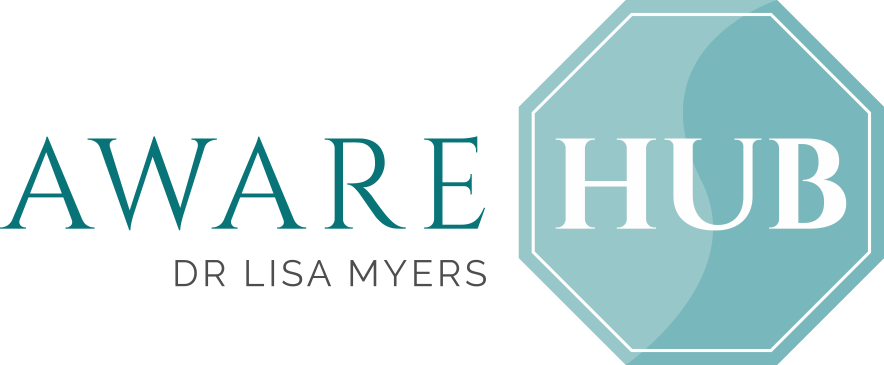Neuropsychology Assessments
The Role of a neuropsychologist
A clinical neuropsychologist has extensive knowledge of how injury or illness of the brain can affect cognitive functions, emotions and behaviour. They assess and treat people with brain disorders that affect memory, learning, attention, language, reading, problem-solving and decision-making.
Their advanced assessment skills assist in making an accurate clinical diagnosis and guides the treatment and rehabilitation of affected clients.
What is a Neuropsychology Assessment?
A neuropsychology assessment can be an invaluable diagnostic tool and a key guide for future care planning, support and treatment.
Generally speaking, the purpose of an assessment is to identify and understand an individual’s cognitive strengths and weaknesses, otherwise known as their cognitive profile. A cognitive profile, or cognition, refers to the thinking skills and abilities that determine how we interact with others and the world around us on an everyday basis. These include abilities such as how well we remember information (memory), how we learn and how fast we process different types (visual and auditory) of information, how we sustain focus on a task (attention), as well as problem solving and decision-making skills, and numerous others.
In an assessment each of these skills are assessed using scientifically derived tests that can range from simple pencil and paper or verbal tasks through to functional problem-solving tests or questionnaires.
The results of these tests are then compared to the average result for people with a similar age and background, which then gives us an understanding of an individual’s relative cognitive strength & weaknesses. In combination with other collaborative evidence, such as medical records, and sometimes information from family, friends, carers or teachers we can obtain a clearer understanding of an individual’s cognitive and behavioural presentation and the factors that might be influencing it. This information can be pivotal in determining a diagnosis and subsequent treatment.
There are a wide range of reasons why your doctor might recommend a neuropsychology assessment.
In adults these can range from examining post-medical event changes in cognition and behaviour (i.e. following a stroke or head trauma) through to investigating changes in cognition that might relate to mood or mental health disorder, or go beyond what could be attributed to normal aging (i.e. neurodegenerative disease).
In children, assessments are commonly undertaken to inform diagnoses with regard to disorders such as Autism Spectrum Disorder, Attention Deficit Hyperactivity Disorder (ADHD), Intellectual Disability and are also used to gauge intellectual and academic functioning.

Types of psychological assessments
- ADHD and attention assesment and diagnosis(adult and child)
- Autism Spectrum Disorders (ASD) assesment and diagnosis
- Specific Learning Disorders, including Dyslexia, Dysgraphia, and Dyscalculia
- General assessment of learning disorders (reading, writing, mathematics disorders, dyslexia)
- Achievement tests
- Intelligence tests
- Behaviour assessments
- School readiness
- Assessment of adaptive functioning
- Assessments for NDIS applications
- Brief cognitive assessment, dementia screening
- Assessment of drug or alcohol related cognitive disorders
- Diagnosis of dementia – Alzheimer’s, vascular dementia, Parkinson’s Disease
- Assessment of memory or age-related cognitive changes
- Assessment for cognitive rehabilitation following a head trauma, brain injury, neurosurgery or stroke
- Cognitive assessment associated with brain injury, stroke, epilepsy, ECT, Deep brain stimulation (DBS), neurosurgery, head trauma, multiple sclerosis (MS), Systemic Lupus Erythematosus (SLE)
- ADHD coaching
Frequently asked questions
Assessments usually range from 3-6 hours with an additional feedback session conducted after the final report has been completed to discuss the results. The length of an assessment will vary depending on the complexity of the case and the amount of testing that needs to be completed to fully investigate the concerns which have been raised. This will also determine whether the assessment is completed in one session or two to three sessions.
There are numerous different cognitive abilities and skills that we use to interact with the world. These abilities and skills are in turn impacted by a range of biological, developmental, psychological and environmental factors. In the assessment, to accurately understand an individual’s cognitive strengths and weaknesses requires that each of these cognitive abilities are measured using standardised (which means they are given the same way to everybody) scientifically derived and validated tasks. Testing the various cognitive abilities in this manner is why assessments can take time.
While an individual assessment session may take several hours, it’s important to note that you’ll be given breaks throughout; the assessment process is not meant to be a test of cognitive endurance! We want to ensure you have the optimal chance to perform at your best.
There are usually several defined stages to the overall assessment process. Firstly, an initial interview with the client (or parent in the case of a child) to obtain background information and also an understanding of the presenting concerns/difficulties. Following the interview, cognitive and behavioural testing will commence, and as noted above, may be conducted in one session or spread across multiple sessions. Once all testing has been completed, those results along with any other collaborative evidence will be consider and a final report produced detailing the findings. The concluding step of the assessment is a feedback session where results and findings will be discussed.
The period of time this process takes, from initial interview to feedback session, will vary depending on how many testing sessions are required. However, the feedback session will usually be booked within one to two weeks of completing the final assessment session.
The cost of a neuropsychological assessment varies depending on the type of assessment. The cost is largely dependent on how long the assessment takes which will be determined by the specific assessement type and the complexity of your individual case.
For specific pricing information, please contact reception on 1300 029 273 or reception@awarehub.com.au.
Payment plans are available upon request.
At this point in time a Medicare rebate is only available on Austism Spectrum Disorder assessments for individuals under 25 years. You may also be able to claim a portion of the costs of your feedback session.
There is no preparation for a neuropsychology assessment as such; you can’t study for the tasks that you’ll be given. However, we want to get the best possible picture of your current cognitive functioning so one of the best things you can do is come to assessment well rested; therefore, avoid alcohol 24hours prior to your assessment and try to get a good night’s sleep.
The assessment is conducted by a Clinical Neuropsychologist, a psychologist who specializes in assessing brain functioning and its relationship with behaviour, or a registered psychologist who has had additional specialised training in psychometric testing and its interpretation.
Our base neuropsychology assessment can assess for Specific Learning Disorders (SLD) – which includes Dyslexia, Dysgraphia, and Dyscalculia.
Please note that in order for a formal diagnosis of a Specific Learning Disorder to be made, clients need to have previously sort treatment to address their learning difficulty, but even after these attempts, performance still remains below what would reasonably be expected. Even in the absence of previous remediation attempts, a neuropsychology assessment can play a valuable role in identifying where an individual’s reading/writing/ maths skills are at relative to expectation and from there provide a baseline from which to gauge the success of subsequent treatment and if an SLD diagnosis is appropriate at that stage having received treatment.
The cost of a neuropsychological assessment varies depending on the type of assessment. For specific pricing information, please contact reception on 1300 029 273 or reception@awarehub.com.au.

